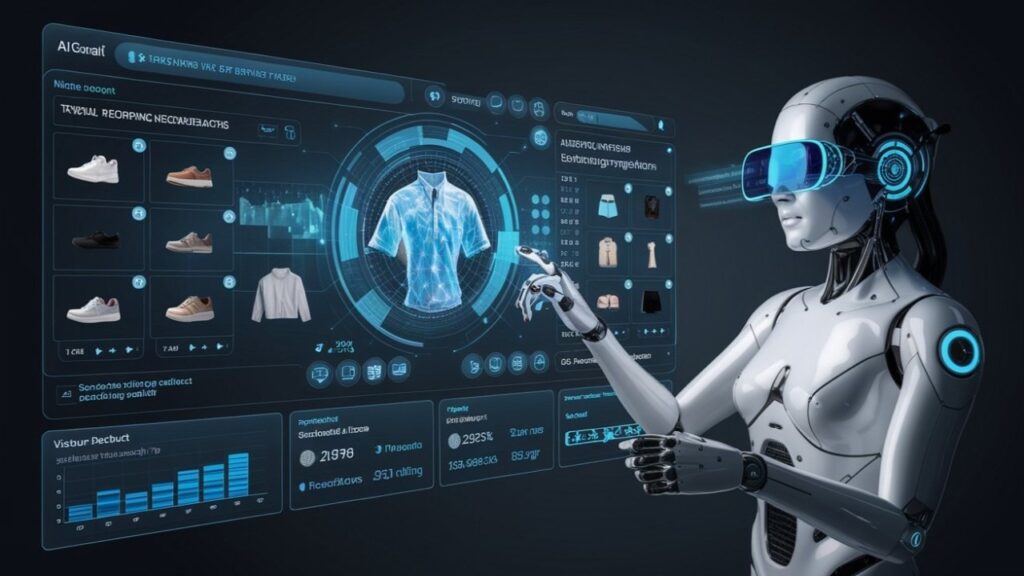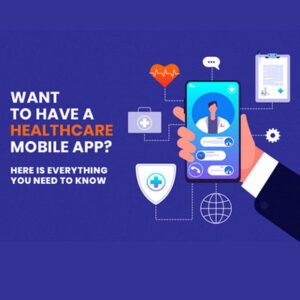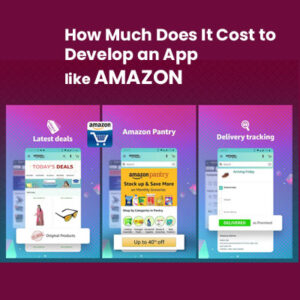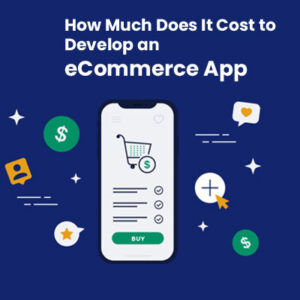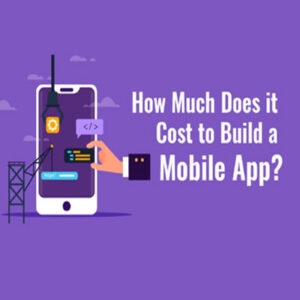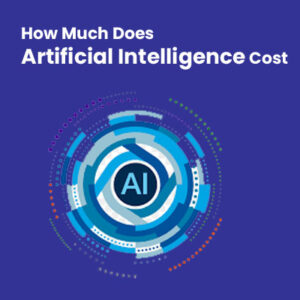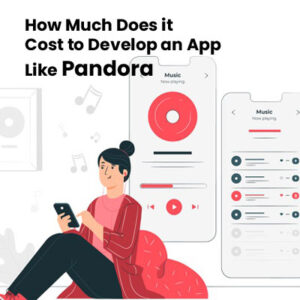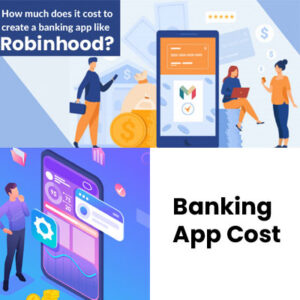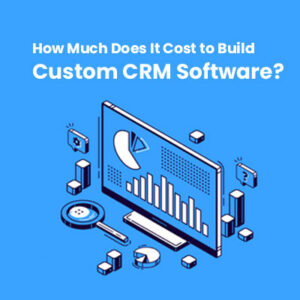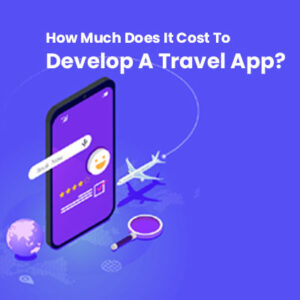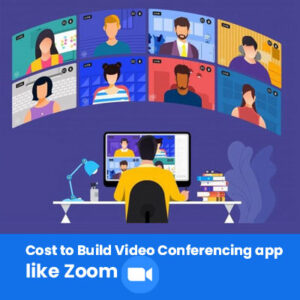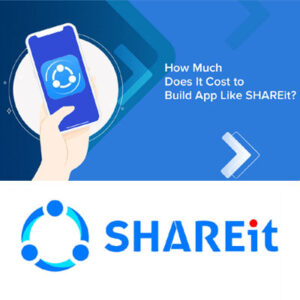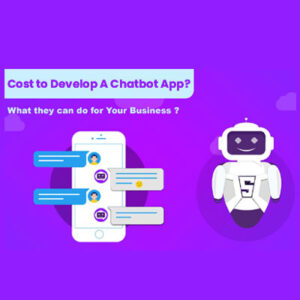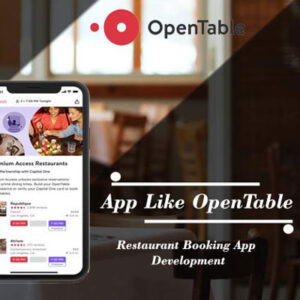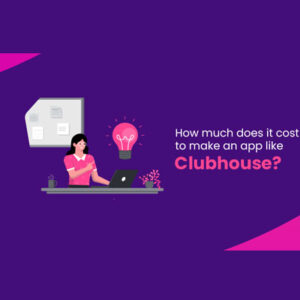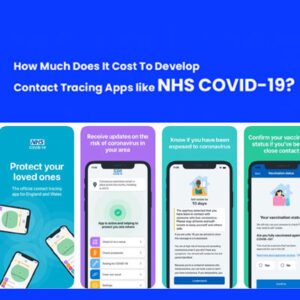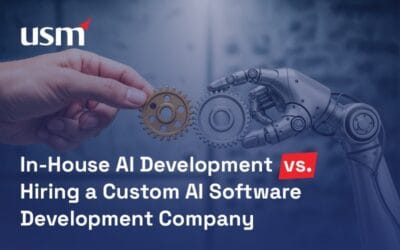AI-Driven Personalized Product Recommendation: Use Cases and Benefits
AI-Driven Personalized Product Recommendation: Use Cases and Benefits
In this competitive digital age, personalized product recommendations are necessary to enhance customer experience and propel sales. The more choices the customer has, the more the demand for products will increase.
Such is the power of AI-driven apps that recommend personalized products; these apps use machine learning for the analysis of a user’s buying behavior to recommend some personalized products. Herein, we have discussed a few top use cases and benefits of AI-powered product recommendations, along with the advantages of AI app development for industries.
What Are AI-Driven Recommendations?
It’s basically a recommendation app that is powered by AI and supports complex algorithms to scan through massive data sets in order to look for patterns in suggesting what to buy. Such a system can also include past purchases, browsing history, demographic information, and even social media activities. By knowing the preferences, AI apps are thus able to draw insights that help businesses in making a more engaging shopping experience and higher customer satisfaction and loyalty.
Moreover, AI-based recommendation apps involve machine learning techniques. As apps continue to train on new data, it tends to be more precise and relevant with time. Such ML algorithms can distinguish user interaction and know which products tend to convert more, hence adjust their recommendations based on the preferences of users.
How Do AI Recommendations Apps Work?
AI-powered product recommendation apps basically operate under two core functionalities: collaborative filtering and content-based filtering, as below.
- Collaborative Filtering: This relies strictly on data about the ways users are interacting. Based on user interactions in purchasing products, the AI systems predict and recommend related products, which may increase conversions and sales.
- Content-Based Filtering: This works on the attributes of the product. If a customer always bought science fiction novels, it would suggest other books that fall in the same genre, are written by the same author, or carry similar keywords from the customer’s previous purchase.
Top Use Cases of AI-Driven Personalized Recommendation Apps!
Customizable AI-driven recommendation apps provide various advantages to businesses across various industries. Some are the following:
- E-commerce
The industry is witnessing a huge increase in conversion rates from personalized recommendations. E-commerce brands, such as Amazon, use modern AI-powered apps to provide personalized product recommendations according to that user’s history of both browsing and purchases.
- Streaming Services
Using AI-based recommendation applications, the leading streaming services, such as Netflix and Spotify, are better engaging their users. They suggest movies, shows, or songs based on a user’s taste, governed by the user’s viewing habits, user ratings, search behavior, and even the time of day when content is consumed.
- Travel and Hospitality
In the tourism industry, AI recommendation apps can be very helpful in personalizing recommendations to travelers. The companies can suggest appropriate destinations for users based on their travel behavior and preferences. Airbnb is contributing to more bookings as they use AI-powered recommendation applications.
- Fashion Retail
This would enable fashion retailers to use AI for personal styling advice. Analyzing a user’s previous purchases, preferences, and even social media activities, such retailers can suggest outfits or accessories matched to the unique style of the user, thus leading to higher customer satisfaction and sales.
- B2B Services
In the B2B sector, AI-driven recommendation can help identify potential suppliers or partners by following their history of procurement behaviors and understanding industry trends. This method will streamline the procurement processes and create value in business relationships.
Best Benefits of AI-Driven Recommendation Applications!
AI-driven product recommendation apps offer various benefits to businesses, such as the following:
- Enhanced Customer Experience
There are many reasons to believe that personalized recommendations will create a better shopping experience in terms of easing search, making it easier to identify and locate products based on customers’ preferences. Therefore, AI apps will save valuable customer time and make an experience smoother in the long run.
- Increased Sales and Conversion Rates
Studies suggest that individualized suggestions will have a positive impact on sales. Researchers have argued that 30% of e-commerce revenues depend on product recommendations. Showing customers products they are more likely to purchase might enhance the conversion rate, thereby allowing for easier revenue growth.
- Improved Customer Retention
A personalized experience drives customer loyalty. The moment the customer feels valued and understood is the moment they will be sure to return to the brand. AI-driven recommendation apps add to this as they will give customers suggestions that are relevant, thus growing the overall relationship between the customer and the brand.
- Better Inventory Management
Recommendations generated by AI software solutions can also be useful in inventory management. Based on the purchasing patterns and forecasting future requirements, businesses can maintain just the right stock levels without excess inventory. This means that waste is minimized and popular items are always in stock.
- Insights into Customer Behaviours
Implementation of AI-driven recommendation systems gives a company insight about its customers’ behavior. A business can, by knowing trends and preferences via user interactions, guide its marketing strategies and the production of its products.
AI App Development for Personalized Recommendations
For the best possible benefits of AI-driven personalized recommendations, businesses need to pay attention to the following considerations in the AI app development process:
- Data Collection and Management.
A recommendation app works only based on the quality and quantity of data. A business must make sure to collect relevant information from the users by considering privacy laws. This collected data requires an appropriate management system for storage, processing, and analysis.
- Choosing the Right Algorithms.
This is the point where the correct choice of algorithms makes the recommendation application work. Business has to first understand their needs and opt for either collaborative filtering, content-based filtering, or a hybrid that includes both.
- Continuous Learning and Adaptation.
Any successful AI-driven recommendation system must make continuous learning of user interactions. Over time, if a machine learning technique lets the system adapt, there will always be relevance in its recommendations and accuracy too.
- User Interface Design.
The user interface is an important part of the effectiveness of personalized recommendations. A good UI should seamlessly integrate recommendations into the user experience without overwhelming the customer. Clear, intuitive layouts can enhance user engagement and satisfaction.
- Testing and Optimization.
Ongoing testing and optimization are necessary to refine the recommendation algorithms. Testing can provide insights into which recommendations drive engagement and conversions, allowing businesses to make data-driven adjustments.
Conclusion
AI-driven personalized product recommendation apps can significantly enhance customer experiences and drive business growth. By leveraging machine learning algorithms to analyze user behavior and preferences, companies can deliver tailored suggestions that meet the unique needs of each customer. Businesses can invest in AI app development for personalized recommendations to achieve benefits like increased sales and improved customer retention.
Partner with USM Business Systems and develop an advanced AI recommendation app that helps generate more value towards customer experiences and personalization.
